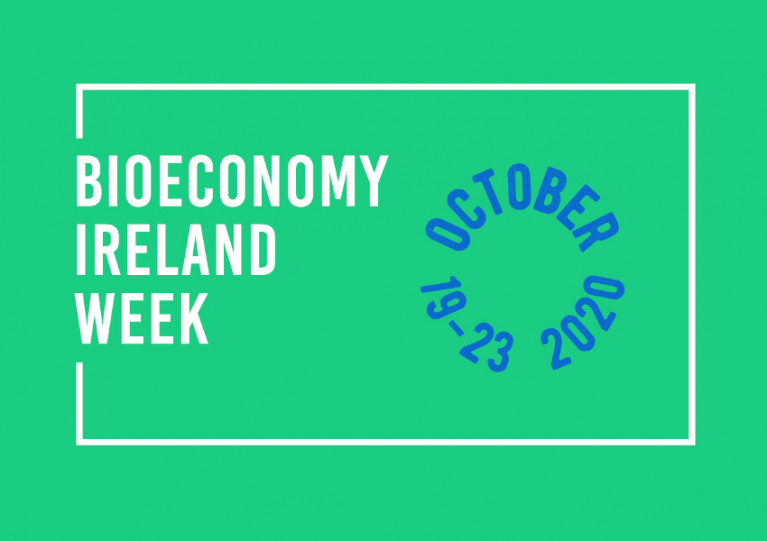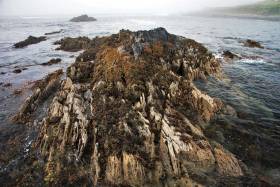Displaying items by tag: Bioeconomy
The spotlight is on seaweed and other renewable biological resources this week for Bioeconomy Ireland Week 2020 — which begins today, Monday 19 October.
A series of online events from leading stakeholders within the Irish Bioeconomy Network will showcase resources sourced sustainably from land and sea which, along with their byproducts, are later converted into “value-added bio-based products” such as proteins, feeds, fertilisers, plastics and energy.
Marine-related highlights of the week include the launch of Bord Iascaigh Mhara’s (BIM) report on ‘Scoping a Seaweed Bio-refinery Concept for Ireland’ this Thursday 22 October, and Friday’s online workshop on ‘Sustainable Seaweed’ organised by Údarás na Gaeltachta.
Industry representatives say the bioeconomy has the potential to create new sustainable opportunities for farmers, and lead to the creation of high-quality green jobs in rural and coastal areas.
Noting the “unprecedented and difficult position” resulting from the coronavirus pandemic, Minister of State Martin Heydon says: “We have the opportunity to reformulate our economy and the bioeconomy provides opportunities to rebuild and restructure in a green sustainable and circular way for our primary producers, as well as the agri-food, marine, forestry, waste management, energy, construction, pharmaceutical and biotechnology sectors. We must build back better.”
Minister Heydon also joined Environment Minister Eamom Ryan in announcing the launch of the National Bioeconomy Forum.
This forum intends to provide a voice for the bioeconomy industry, relevant state bodies and community groups, as well as “promote, support and advocate for the sustainable development of the bioeconomy in Ireland”.
For full list of events taking place this week, registration for access and for more information of Bioeconomy Ireland, visit the website at www.irishbioeconomy.ie
Marine Institute Researcher Runner-Up In EU Photo Contest
#MarinePhoto - A marine researcher at the Marine Institute was recently runner-up in the EU-funded CommBeBiz photography competition with the theme of ‘New Perspectives on the Bio-Economy’.
Tomasz Szumski captured the prize-winning shot ‘Micro Island - Connemara’ when he provided technical and photographic support to Dr Jenny Ronan during sampling and subsampling of the seaweed for the AsMARA project along the Connemara coastline.
AsMARA (arsenic in marine macro algae) is a three-year project funded by the Department of Agriculture, Food and Marine’s Food Institutional Research Measure (FIRM), and is a marine science collaboration between the Marine Institute involving Dr Evin McGovern and NUI Galway’s Dr Dagmar Stengel to research seaweeds found in Ireland and assess their implications for commercial uses.
Over 100 scientists from across nine European countries entered the photo contest to highlight aspects of their research that supports the development of the European bio-economy to reduce the EU’s dependency on fossil resources, and contribute to producing environmentally friendly renewable products that meet our needs for food, materials and energy.
With the ocean representing over 70% of the earth’s surface, living marine resources such as seaweeds can provide a significant contribution to food, energy and bio-based products.
“In Ireland, there is a long tradition of using seaweeds and an increasing international interest in developing this resource into a range of products such as foods, fertilisers, animal feed and cosmetics,” said Szumski.
Through this research, the Marine Institute says it is evaluating the variability in the levels of organic and inorganic forms of arsenic in commercially harvested seaweed species to ensure their safety for such uses as food supplements and cosmetic components. The information generated supports innovation of blue biotechnologies, as well as assisting policy makers in risk management for consumer protection.
The winning photos in the 2017 CommBeBiz photo competition are being exhibited online on European project websites including CommBeBiz and the BioStep Project, as well as in Horizon Magazine, the European Commission’s research and innovation journal.
Entries for the 2018 edition will open on Monday 1 May.
Marine Minister Opens Major Bioeconomy Stakeholders Conference
#Bioeconomy - Minister for the Marine Simon Coveney today (14 February) opened a major Stakeholder Conference on the Bioeconomy in Dublin Castle.
The conference - titled 'Bioeconomy in the EU: Achievements and Directions for the Future' - was jointly organised by the EU Commission and the Department of Agriculture, Food and the Marine on behalf of the Irish Presidency of the European Union.
Commissioner Máire Geoghegan-Quinn also addressed the delegates at the opening of the conference, which brings together all the major stakeholders in the bioeconomy from Ireland, across Europe and beyond, including researchers, educationalists, policymakers, industry representatives and civil society.
The purpose of the conference is to take stock of progress on implementing the EU Bioeconomy Strategy, which was launched 12 months ago by Commissioner Geoghegan-Quinn, and to promote informed public debate on the future development of the bioeconomy.
Setting the broad context, Minister Coveney said the “grand societal challenges of the 21st century place enormous pressures on all of us to change the way we do things at a member state, European, and indeed global level. Our objective is clear... we need a more innovative and low emissions economy, reconciling demands for sustainable agriculture and fisheries, food security and the sustainable use of renewable resources for industrial processes, while protecting the environment.”
The minister added that in Ireland’s case “the Government’s Policy Statement, 'Delivering our Green Potential', adopted last year, commits us to developing a Bioeconomy Strategy as part of a broader strategy on the Green Economy. This work will be progressed over the coming months overseen by the Cabinet Committee on Climate Change and the Green Economy."
Referring to the fact that the marine sector, along with agri-food and forestry, helps form the backbone of the bioeconomy in Ireland, the minister recalled the Think Green, Act Smart, Achieve Growth philosophy of Food Harvest 2020 and went on to say that “by applying these principles along the entire bioeconomy value chain, we can exploit the full potential of our rich natural resources in a sustainable manner for our own economic advantage while also contributing to meeting the increasing global demand for food.”
Minister Coveney pointed out that Ireland is making steady progress in implementing the various actions foreseen across the three pillars of the EU Bioeconomy Strategy.
“My colleagues in Government and I remain fully supportive of research and innovation and understand the crucial role it plays in underpinning growth in the bioeconomy,” he said, adding that he was “delighted to report that several of the areas prioritised for future Exchequer funding under the National Research Prioritisation Exercise related to the bioeconomy, including 'Sustainable Food Production & Processing' and 'Manufacturing Competitiveness'."
Commissioner Geoghegan-Quinn stressed that "the bioeconomy's employment potential can certainly kick-start economies and reinvigorate communities in some of our most peripheral and deprived areas".
She added that "an economy based on biological resources is also the newest economy... it is a crucible of new technology and innovation, leading the way in the application of information technology, biotechnology and the life sciences while in many cases blending these with existing knowledge and expertise" and that “it is in the member states and regions that the greatest work must be done.”































































